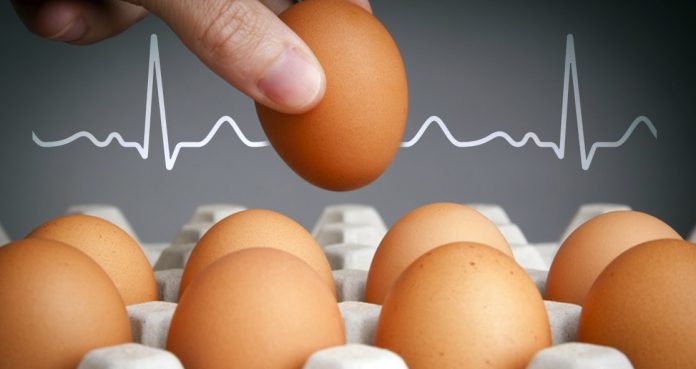According to new research, people who eat three or more eggs a week or 300 mg of dietary cholesterol a day, have a greater risk of heart disease as well as early death when compared with those who consume fewer eggs.
Victor Zhong, the lead study author, said, “Eggs, specially the yolk, are a major source of dietary cholesterol.” He and his team mentioned that a single large egg would contain around 186 mg of cholesterol.
The study findings were published Friday in the Journal of the American Medical Association (JAMA).
The team investigated data from six study groups, which included over 29,000 people. The findings over the follow-up period include:
- 5,400 cardiovascular events
- 1,302 fatal and nonfatal strokes
- 1,897 incidents of fatal and nonfatal heart failure
- 113 other heart disease deaths
- 6,132 deaths due to other causes.
According to Zhong’s analysis, having an additional 300 mg of dietary cholesterol a day was associated with a 3.2% higher risk of heart disease and a 4.4% higher risk of premature death.
One of the potential reasons for inconsistent results from the previous studies was that they did not take into account that egg consumption can be related to sedentary lifestyle, smoking and an unhealthy diet. In addition, foods containing cholesterol are usually rich in animal protein and saturated fat.
Zhong and his co-authors wrote, “In contrast, the current study included comprehensive assessment of these factors.”
Dr. Robert H. Eckel of the University of Colorado School of Medicine explained that this topic is extremely important to physicians, patients as well as the public at large.
Dr. Eckel, who was not involved in the study, wrote, “The association of egg consumption and dietary cholesterol with [cardiovascular disease], although debated for decades, has more recently been thought to be less important. The new report ‘is far more comprehensive, with enough data to make a strong statement that eggs and overall dietary cholesterol intake remain important in affecting the risk of [cardiovascular disease], and more so the risk of all-cause mortality.’”
He explained that the association between eggs and the risk of cardiovascular disease and early death is only modest. He said, “Since higher consumption than average of either cholesterol or eggs is related to an increase in cardiovascular disease incidents like stroke and early death, the new finding is significant when considering the population at large.”
He concluded, “Considering the negative consequences of egg consumption and dietary cholesterol in the setting of heart-healthy dietary patterns, the importance of limiting intake of cholesterol-rich foods should not be dismissed,” he concluded.
Zhong and his team concluded, “These results should be considered in the development of dietary guidelines and updates.”
Victoria Taylor, a senior dietitian with the British Heart Foundation, who was not the part of the study, said, “This type of study can only show an association, rather than cause and effect, and more research is needed for us to understand the reasons behind this link.” She added, “Eggs are a nutritious food and, while this study focuses on the amount we’re eating, it’s just as important to pay attention to how the eggs are cooked and to the trimmings that come with them. She concluded, “Eating healthily is all about balance.”























